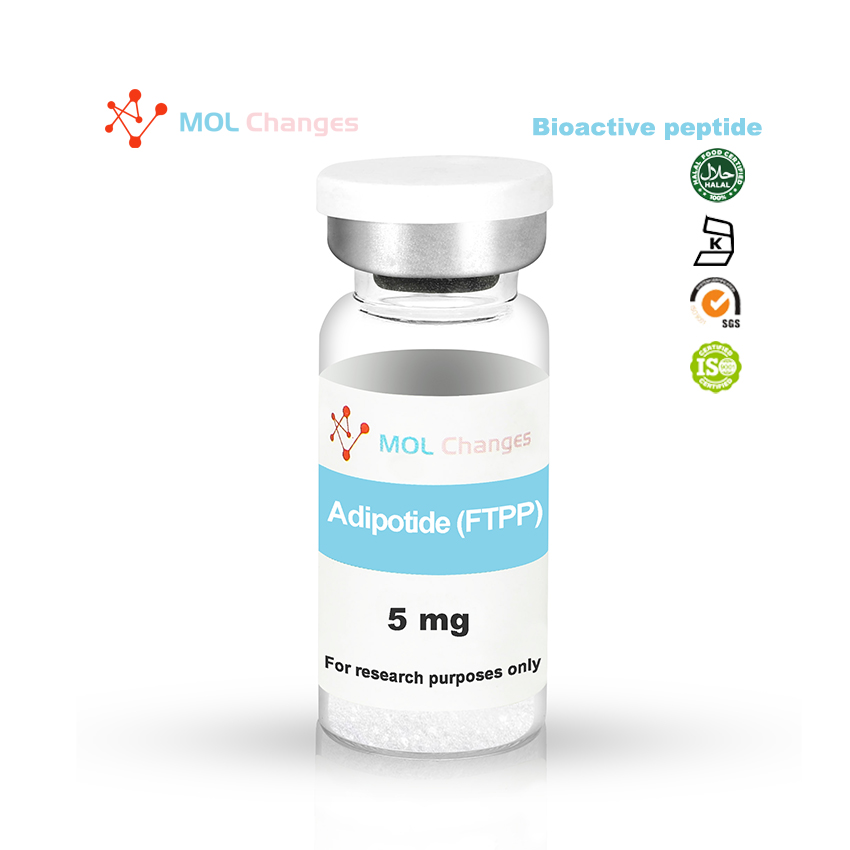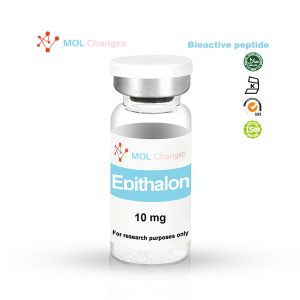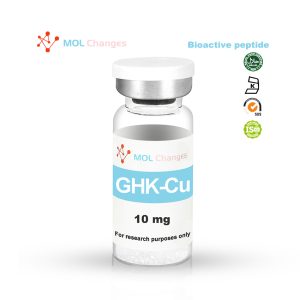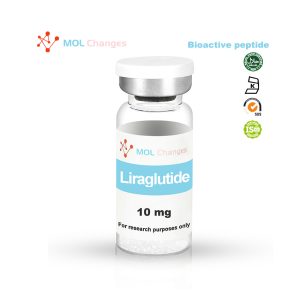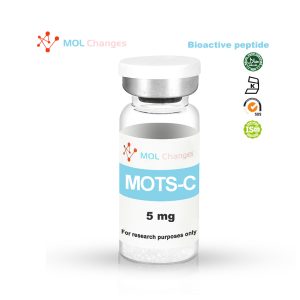Adipotide (FTPP)
Adipotide (FTPP) is a synthetic peptide that has been investigated for its possible application in the treatment of obesity and weight loss.
$9.00 – $19.40
WhatsApp us
◐ Bulk price on WhatsApp!
◐ MOQ: 10 pieces
◐ Peptide manufacturing plant
◐ Implementation of CGMP standards
◐ ISO9001 & ISO14000
SHARE THIS

Product information navigation
What is Adipotide (FTPP)?
1. Adipotide and Weight Loss
Adipotide was developed and entered Phase I clinical trials in 2011 to study its ability to kill fat cells. Tests on rhesus monkeys showed that adipotide causes apoptosis in targeted cells in the blood vessels of white adipose tissue (fat). Without a blood supply, the fat cells die. The end result is rapid weight loss, rapid decrease in body mass index (BMI), and improvement in insulin resistance characteristics. Interestingly, fat peptide treatment and subsequent fat loss not only improved body weight, but actually promoted changes in eating behavior. Monkeys that lost weight with adiponectin also showed a reduction in food consumption.1].
2. Adiponectin and cancer
Inhibin, a molecule potentially targeted by adiponectin in adipocytes, has been linked to certain types of cancer.3]. It is well known that cancer cells require a large blood supply to grow and metastasize. The ability to target inhibin in cancer cells may provide advanced therapies that target cancer without harming surrounding tissues.
3. Fatty peptides and glucose tolerance
Glucose tolerance is a term that refers to higher than normal blood sugar levels. The condition is usually diagnosed through a blood test and confirmed by testing fasting blood glucose levels or by performing a glucose tolerance test, in which a certain amount of sugar is consumed and then blood glucose blood levels are measured. Glucose tolerance is a surrogate indicator of diabetes and an increase in glucose tolerance indicates a tendency to develop diabetes.
Elevated blood sugar levels can be treated through diet and exercise, but these methods require dedication and motivation. They also take a considerable amount of time to produce results. In general, most people with impaired glucose tolerance will develop overt type 2 diabetes, requiring medications such as metformin and, in some cases, insulin. Studies of adiponectin have shown that the peptide improves glucose tolerance rapidly and independently of body weight.4]. The latter part is crucial because it shows that adiponectin reduction of white fat effectively reduces glucose tolerance, regardless of the effect on body weight. In other words, it is fat reduction, not weight reduction, that matters. These findings not only open the way for the development of new treatments for prediabetes and diabetes, but also help clarify and explain the mechanisms that lead to diabetes.
There is some debate as to whether adiponectin directly leads to fat loss, or simply reduces food intake and thus indirectly leads to fat loss.4]. It is likely that adiponectin leads directly to fat loss. This hypothesis is supported by the fact that peptides cause changes in adipocyte density but not weight loss, and affect glucose tolerance but not weight loss.
Structure
- Sequence:Cys-Lys-Gly-Gly-Arg-Ala-Lys-Asp-Cys—Gly-Gly–(Lys-Leu-Ala-Lys-Leu-Ala-Lys)2
- CAS Number:62568-57-4
- Molecular Formula:C152H252N44O42
- Molecular Weight: 2611.41 g/mol
Referenced Citations
- K. F. Barnhart et al., “A peptidomimetic targeting white fat causes weight loss and improved insulin resistance in obese monkeys,” Sci. Transl. Med., vol. 3, no. 108, p. 108ra112, Nov. 2011.
- M. G. Kolonin, P. K. Saha, L. Chan, R. Pasqualini, and W. Arap, “Reversal of obesity by targeted ablation of adipose tissue,” Nat. Med., vol. 10, no. 6, pp. 625–632, Jun. 2004.
- F. I. Staquicini et al., “Vascular ligand-receptor mapping by direct combinatorial selection in cancer patients,” Proc. Natl. Acad. Sci. U. S. A., vol. 108, no. 46, pp. 18637–18642, Nov. 2011.
- D.-H. Kim et al., “Rapid and weight-independent improvement of glucose tolerance induced by a peptide designed to elicit apoptosis in adipose tissue endothelium,” Diabetes, vol. 61, no. 9, pp. 2299–2310, Sep. 2012.
- L. Criscione, “Comment on ‘a peptidomimetic targeting white fat causes weight loss and improved insulin resistance in obese monkeys,’” Sci. Transl. Med., vol. 4, no. 131, pp. 131le2; author reply 131lr2, Apr. 2012.
- Barnhart KF, Christianson DR, Hanley PW, et al. A peptidomimetic targeting white fat causes weight loss and improved insulin resistance in obese monkeys. Sci Transl Med. 2011;3(108):108ra112. doi:10.1126/scitranslmed.3002621
ALL ARTICLES AND PRODUCT INFORMATION PROVIDED ON THIS WEBSITE ARE FOR INFORMATONAL AND EDUCATIONAL PURPOSES ONLY.
In no way does this doctor/scientist endorse or advocate the purchase, sale, or use of this product for any reason. MOL Changes has no affiliation or relationship, implied or otherwise, with this physician. The purpose of citing this doctor is to acknowledge, acknowledge and commend the exhaustive research and development work done by the scientists working on this peptide.
Manufacturer Information
- Adipotide (FTPP) is manufactured by MOL Changes factory.
- Adipotide (FTPP) supplier MOL Changes.
- Maximum acceptable production volume: 10,000 bottles.
- Content standard: net peptide.
- Purity: ≥98% for all products.
- Customization: 1mg-1g size customization is acceptable

